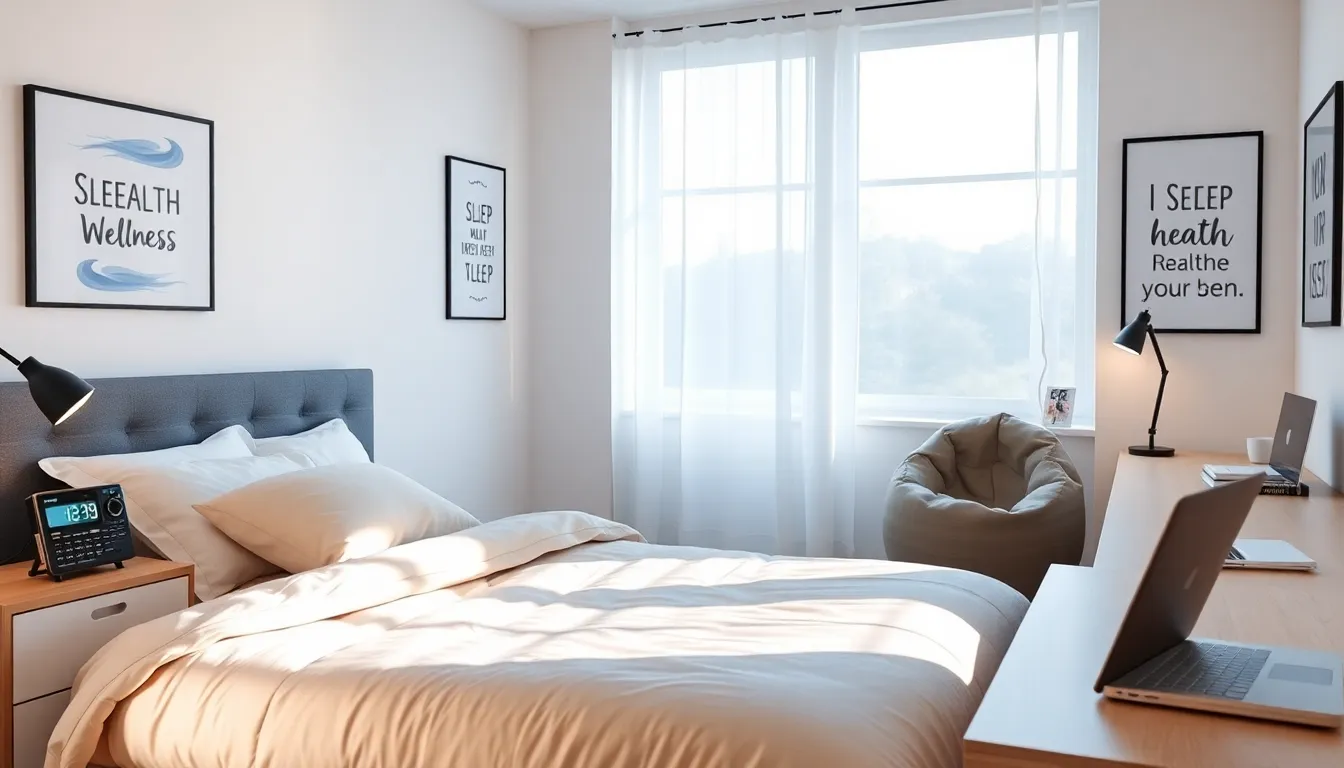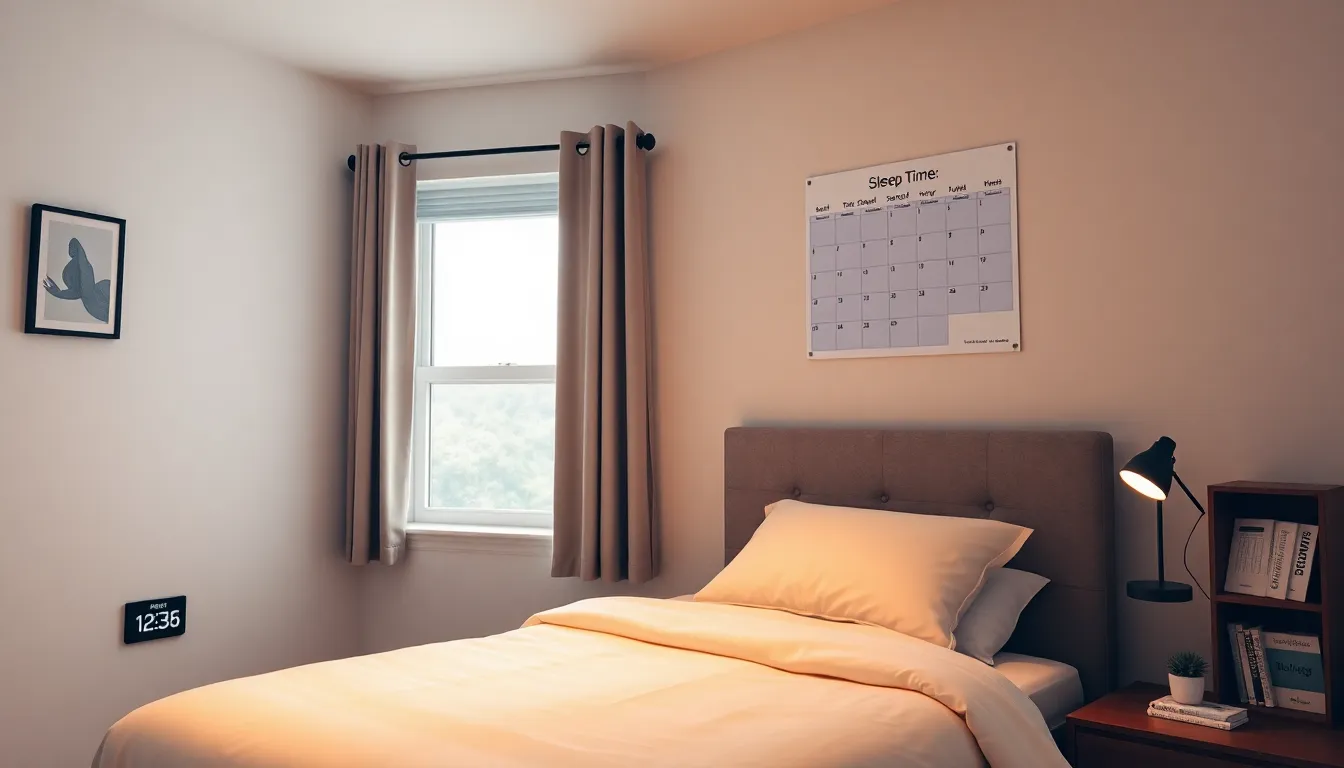If you’re a teen, or you know one, chances are they’ve heard the age-old advice that they should ‘just get more sleep.’ But let’s face it: with assignments, social media, and endless distractions, sleep can often feel like a luxury. The fact is, getting quality sleep isn’t just about getting those hours in: it’s about hitting the pillow the right way. In this guide, we’re diving deep into the art of slumber, with tips and tricks that even the most sleep-deprived teen can embrace. Get ready to snooze like a pro.
Table of Contents
ToggleUnderstanding Sleep Needs For Teens

Teens often underestimate their sleep requirements. While adults tend to need about seven to eight hours, teenagers typically need between eight to ten hours a night. They are going through significant physical, emotional, and mental changes, all of which demand more rest. Biological changes during puberty shift their natural sleep rhythms, leading them to feel more awake in the evening and groggier in the morning. This often results in late bedtimes and even later wake-up calls, which can severely affect their academic performance and daily mood. Understanding these sleep needs is crucial. It’s not just about quantity: it’s about quality sleep that restores and revitalizes.
The Importance Of Sleep For Teenagers
Sleep is more than just a nightly ritual for teens: it’s a crucial element of healthy development. Adequate sleep plays a vital role in maintaining attention, memory, and even mood. When teens skimp on sleep, they’re likely to experience irritability, anxiety, and trouble focusing. It’s been scientifically proven that lack of sleep negatively affects a teen’s ability to think critically, handle stress, and tackle challenges. Plus, chronic sleep deprivation can lead to more serious health issues down the line, like obesity, depression, and weakened immune function. Prioritizing sleep is like giving the brain a chance to hit the refresh button. Who wouldn’t benefit from a little reboot?
Creating An Optimal Sleep Environment
A cozy, distraction-free sleep environment is essential for those teenage snooze sessions. Here’s how to create the ultimate sleep sanctuary:
- Keep it Dark: Light can interfere with melatonin production, which makes it hard to fall asleep. Blackout curtains can help keep mornings from sneaking in too early.
- Control the Temperature: Cooler rooms often promote better sleep. Aim for a temperature between 60 to 67 degrees Fahrenheit.
- Limit Noise: A quiet environment is fundamental. White noise machines or earplugs can block out pesky sounds like traffic or loud neighbors.
- Comfortable Bedding: Invest in a good mattress and pillows that provide proper support. Comfort goes a long way in ensuring deep sleep.
- Tech-Free Zone: Keep electronics out of the bedroom. Blue light from screens can interrupt the body’s natural sleep signals.
These simple adjustments can transform an average bedroom into a sleep haven.
Establishing Healthy Sleep Habits
Good sleep hygiene is key to ensuring that sleep comes easily and stays solid throughout the night. Teens should aim to establish a consistent sleep schedule, even on weekends. Going to bed and waking up at the same time daily reinforces the body’s internal clock, making sleep more predictable. Other habits to cultivate include:
- Wind Down: Creating a calming pre-sleep routine, like reading a book or meditating for 30 minutes can help signal to the brain that it’s time to wind down.
- Limit Caffeine and Sugars: These stimulants can keep teens awake longer than desired. Encouraging lighter dinner choices can help, too.
- Stay Active: Regular physical activity, especially in the afternoon, can lead to deeper sleep. But, exercising too close to bedtime might have the opposite effect.
Consistency is key: the more a teen adheres to these habits, the easier sleep will become.
Managing Stress And Anxiety
Stress and anxiety can wreak havoc on a teen’s ability to sleep soundly. It’s important for teens to learn coping strategies. Regular discussions about feelings, journaling, or talking to someone they trust can alleviate anxiety. Techniques such as deep breathing, yoga, and mindfulness meditation can also prove beneficial in easing the mind.
Also, balancing schoolwork with social activities is vital. Overloading on responsibilities can create unnecessary stress, leading to sleepless nights. Encourage teens to prioritize their tasks and schedule downtime. Creating a healthy balance can ease anxiety and pave the way for restful sleep.
The Role Of Nutrition And Exercise
What goes into the body can significantly affect sleep quality. A balanced diet rich in whole grains, fruits, vegetables, and protein, but low in processed foods, can promote better rest. Foods containing tryptophan, like turkey and bananas, can help increase melatonin levels, paving the way for sleep.
Regular exercise is not just crucial for physical health but mental well-being too. Engaging in physical activities during the day can lead to improved sleep quality at night.
But, heavy meals or intense workouts too close to bedtime should be avoided, as they may disrupt sleep. Instead, make a habit of lighter snacks in the evening, and leave more intense exercise for the earlier parts of the day.
When To Seek Professional Help
If sleep issues persist even though trying these tips, it may be time to consult a professional. Conditions such as insomnia or sleep apnea are not uncommon among teenagers. Recognizing the signs, like persistent fatigue, difficulty concentration, excessive daytime sleepiness, can help in addressing cycles of poor sleep effectively. Health care providers can offer guidance on treatments or therapies that might help improve sleep outcomes.



